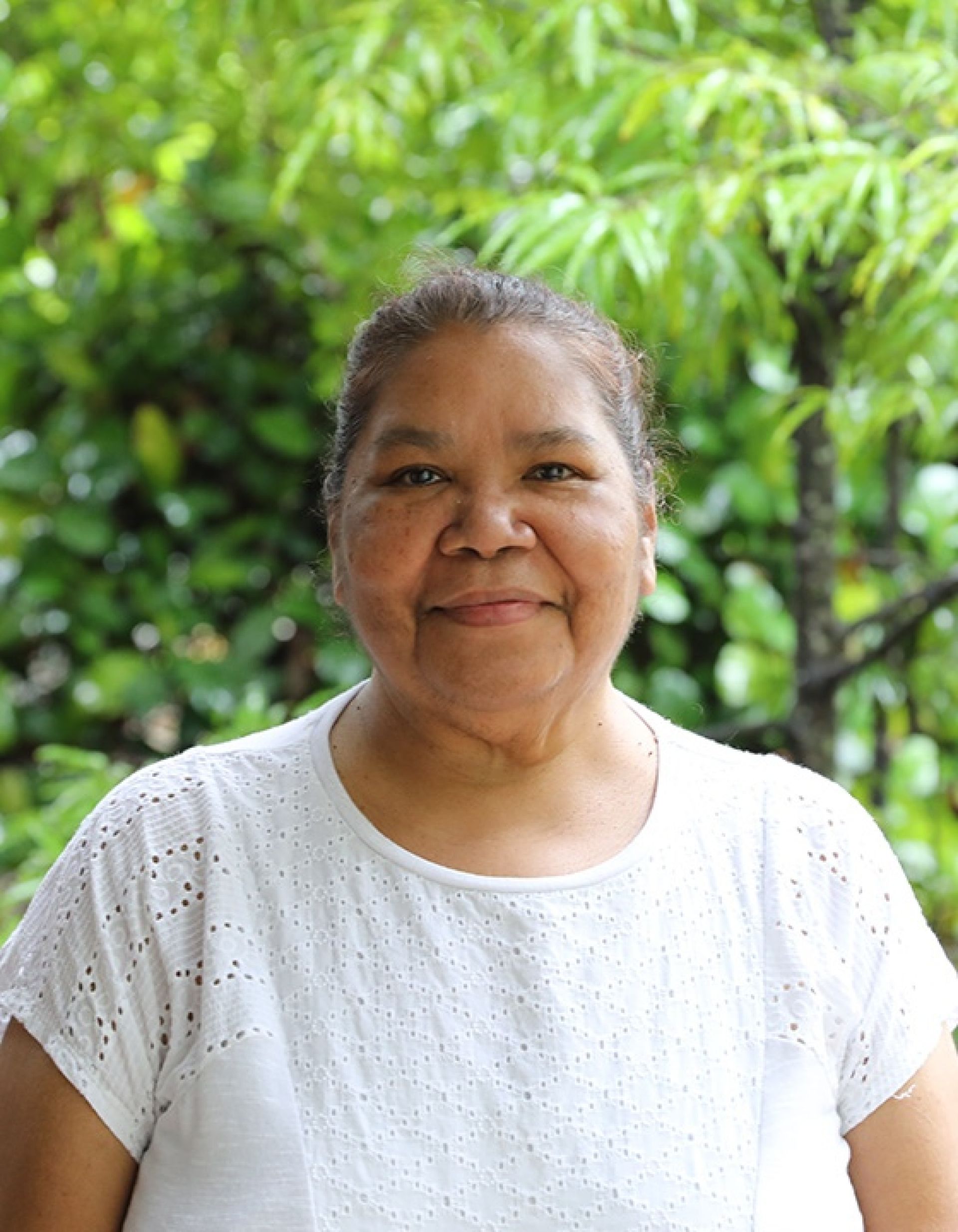
Dr Robyn Ober is a Mamu/Djirribal woman from Far North Queensland. She is the Indigenous Research Practice Leader and educator at Batchelor Institute and has extensive experience in the Northern Territory that spans 3-decades. She is well renowned for her expertise of both-ways pedagogy, working to combine Indigenous and non-Indigenous ways of knowing, being and learning in teaching practice and research.
Robyn’s PhD thesis is titled: Aboriginal English as a Social and Cultural Identity Marker in an Indigenous Tertiary Educational Context. Her educational and research leadership is internationally and nationally recognised and reflected in her numerous consultancies and research on education delivery, both-ways education, social linguistics and Indigenous research methodologies in the Northern Territory, national and international Indigenous educational contexts.
Robyn is a Board member of Adult Learning Australia, the national peak body for adult and community education, and represents Batchelor as a member of the National Reading Writing Hotline Steering Committee.

Examples of Robyn’s work
This project seeks to amplify and highlight this important Indigenous research space and inform western scientific research, that Aboriginal people have their own ways of doing research drawing on deep, intellectual and culturally sound knowledge systems. Dr Ober would like to build a larger research project from this study to develop a framework for community based researchers.
The TESBWK research project aims to learn from the experiences of those who went through tertiary enabling programs to create effective Indigenous-non-Indigenous Ally relationships to inform Indigenous academic success.
Collaborating with: Lethbridge University, Canada.
This collaborative project collected the higher education journey and experiences of First Nations people who graduated with high education degrees from CDU or BIITE.
Collaborating with: CDU
This project, led by Uni of Melbourne, aimed to improve the literacy outcomes for Aboriginal students. It focuses on the assessment of oral language, the foundation for written literacy skills, and the mode of communication most common for this student cohort. The project will collect school-based oral language data from rural and remote educational sites and use it to develop supplementary assessment tools for multilingual education. The assessment tools will be validated in workshops with teachers and expanded with descriptors for assessing Aboriginal students’ communicative competence. The project aims to improve educational outcomes for rural and remote Aboriginal students.
Collaborating with: Uni of Melbourne, Curtin University, ANU
2023-2024
An Australian Government funded research project designed to inform understanding of the dynamics or engagement and retention in remote schools of Western Australia and Northern Territory.
Collaborating with: Curtin University and University of Notre Dame
2019-2022
An evaluation funded by Karrkad Kanjdji Trust to inform the strategic direction of the Nawarddeken Academy and its development at Kabulwarnamyo, Manmoyi and Mamadawerre.
2025-2028
An Australian Research Council funded research project which will find out what schools can do to keep students learning at school and support them transition into work or further study.
Collaborating with: Curtin University and Australian National University
2024-2026
A research and evaluation project funded by the Paul Ramsey Foundation which will assess school improvement and enablers and barriers to success through Schools Plus programs in 45 remote and very remote schools.
Collaborating with: Charles Sturt University
